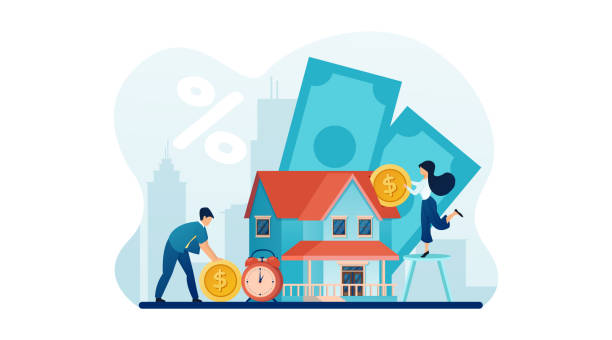Cash-out refinancing is a financial strategy that allows homeowners to refinance their existing mortgage and receive additional funds in the form of a cash payout. Here’s an overview of the process, benefits, drawbacks, alternative options, eligibility criteria, and key considerations related to cash-out refinancing:
Process:
- Evaluate your financial needs: Determine the amount of money you need and consider how it will be used.
- Assess your home equity: Calculate the current market value of your home and subtract the outstanding balance on your mortgage to determine your available equity.
- Research lenders: Shop around and compare rates, terms, and fees from different lenders.
- Apply for refinancing: Submit an application with the chosen lender and provide the required documentation.
- Property appraisal: The lender will typically arrange for an appraisal to assess the value of your property.
- Underwriting and approval: The lender will review your application, credit history, and financial information to determine if you qualify for the refinance.
- Closing: If approved, you’ll sign the necessary paperwork to finalize the new mortgage and receive the cash proceeds.
Benefits of Cash-Out Refinancing:
- Access to funds: You can tap into your home equity and receive a lump sum of cash to use for various purposes, such as home renovations, debt consolidation, education expenses, or emergencies.
- Potentially lower interest rates: Refinancing may allow you to secure a new mortgage with a lower interest rate, potentially reducing your overall borrowing costs.
- Simplified finances: Consolidating high-interest debt into a single mortgage payment can simplify your monthly financial obligations.
Drawbacks of Cash-Out Refinancing:
- Increased mortgage debt: By borrowing additional funds, your mortgage balance will increase, potentially extending your repayment period and increasing interest costs over time.
- Closing costs: Cash-out refinancing involves closing costs, which can include fees for appraisal, origination, title search, and other services. Consider these costs when evaluating the financial benefit of refinancing.
- Risk of foreclosure: Using home equity for non-essential expenses or poorly planned financial decisions could put your home at risk if you’re unable to meet the new mortgage payments.
Alternative Funding Options: If cash-out refinancing doesn’t align with your needs or circumstances, you might consider these alternative options:
- Home equity loans: This type of loan allows you to borrow against your home equity while keeping your existing mortgage intact.
- Home equity lines of credit (HELOC): HELOCs provide a revolving line of credit based on your home equity, allowing you to borrow as needed.
- Personal loans: Unsecured personal loans can be used for various purposes, but they often come with higher interest rates than mortgages or home equity loans.
Eligibility Criteria and Key Considerations: To qualify for cash-out refinancing, lenders typically consider factors such as:
- Sufficient equity: Lenders generally require a minimum amount of equity in your home, typically around 20%.
- Creditworthiness: Your credit score and history play a significant role in determining eligibility and interest rates.
- Debt-to-income ratio: Lenders assess your ability to repay the loan based on your income compared to your debt obligations.
- Loan-to-value ratio: Lenders consider the ratio of the new loan amount to the appraised value of your property.
Before proceeding with cash-out refinancing, it’s important to consider your long-term financial goals, evaluate the total costs involved, and assess whether it aligns with your overall financial plan.
It’s advisable to consult with a mortgage professional or financial advisor who can provide personalized guidance based on your specific situation and goals.
In conclusion, cash-out refinancing can be a useful financial tool for homeowners seeking extra funds. However, it is important to carefully assess the advantages and disadvantages before making a decision. By thoroughly evaluating the potential benefits and drawbacks, homeowners can determine if cash-out refinancing aligns with their financial goals and circumstances.
It is also advisable to explore alternative funding options. Homeowners should consider other avenues such as personal loans, home equity loans, or lines of credit, to ensure they are selecting the most suitable solution for their specific needs. Comparing the terms, interest rates, and repayment options of different financing options can help homeowners make an informed choice.

Additionally, it is crucial to understand the eligibility criteria for cash-out refinancing. Lenders typically consider factors such as credit score, income stability, loan-to-value ratio, and the equity in the property. Being aware of these requirements can help homeowners determine their eligibility and streamline the application process.
Furthermore, homeowners should carefully evaluate the potential consequences of cash-out refinancing. This includes considering the impact on their monthly mortgage payments, the total interest paid over the life of the loan, and the potential risks associated with using their home as collateral.
Lastly, it is advisable to consult with financial professionals or mortgage advisors. These experts can provide personalized advice based on individual financial situations, assisting homeowners in making informed decisions and creating a solid repayment plan that aligns with their long-term financial goals.
By taking these considerations into account, homeowners can make a well-informed decision regarding cash-out refinancing and ensure that it supports their overall financial strategy.



